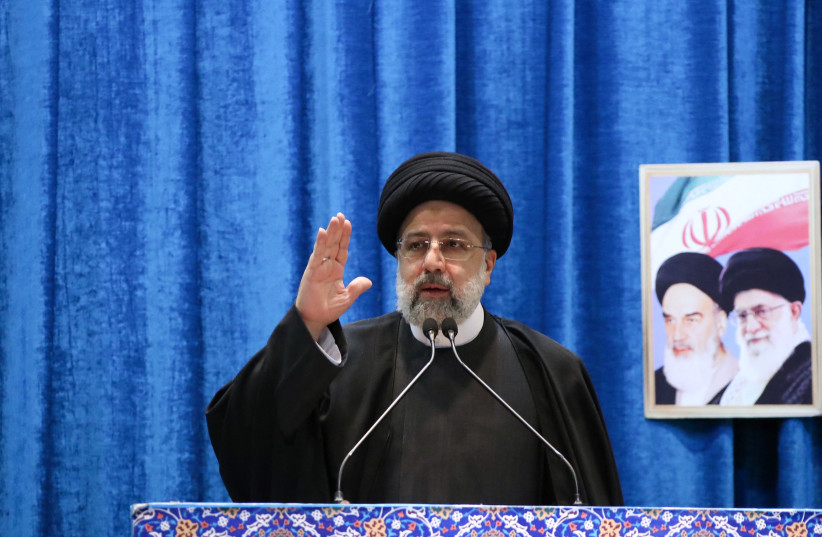One of the greatest lessons of the Holocaust should be that when someone threatens war, invasion and genocide against a people, we should believe they mean it.
Whether in the media or by Western politicians, many in the 1930s dismissed Hitler’s violent statements and acts against Jews as mere grandiloquence. Some claimed he was just using rhetorical devices about Jews for other political purposes.
As Andrew Nagorski, author of Hitlerland, a book that discusses Western reactions to the early days of the Third Reich, said in an interview about types of international reaction to Hitler and Goebbels’s talk of exterminating the Jews, “Oh, that’s just a figure of speech. They don’t really mean it. It’s just a way to whip up supporters.”
Even today, we see that the West did not believe that Vladimir Putin would invade Ukraine in the way that he has. Many thought the rhetoric and the mass buildup of troops on the borders were just muscle-flexing and jockeying for a better negotiating position vis-à-vis NATO.
Unfortunately, even now in the middle of the bloodiest war in Europe since the end of World War II, we see that few are learning these lessons.

At the same time, in Vienna, the world’s powers are about to sign an agreement that would eventually allow one of the most radical and antisemitic regimes in the world to acquire weapons of mass destruction.
If ignoring Hitler’s intentions in the 1930s was arguably the greatest mistake of the 20th century, permitting the ayatollahs in the Islamic Republic of Iran to have nuclear weapons capability could well become the most costly and bloody error of the 21st century.
For decades, Iranian leaders have used genocidal rhetoric against Israel and the Jewish people.
Iranian Supreme Leader Ayatollah Ali Khamenei followed his predecessor Ayatollah Ruhollah Khomeini by continuously making statements like “the cancerous tumor called Israel must be uprooted from the region” and “the foundation of the Islamic regime is opposition to Israel and the perpetual subject of Iran is the elimination of Israel from the region.”
If anyone was in any doubt how the “uprooting” and “elimination” of Israel should take place, these types of quotes are regularly draped over missiles during the Islamic Republic’s military parades.
In case anyone thought the language of antisemitic hate and incitement is solely that of the supreme leader, other Iranian leaders have used terms like “cancer,” “cattle,” “blood-thirsty barbarians,” and “criminals” repeatedly throughout the years.
This type of dehumanizing language has been used elsewhere to justify mass murder, for example in the lead up to the Rwandan Genocide. Another example of how many in the international community dismissed the words before the deeds.
Even today, while the P5+1 meets in Vienna to hammer out the contours of a return to the JCPOA, the violent and genocidal rhetoric is not a matter for debate. Iran’s constant arming of the enemies of Israel, the West and its allies, whether of the Houthis in Yemen, Shi’ite terrorist groups in Iraq or Hezbollah in Lebanon, the Islamic Republic’s lust for chaos, violence and bloodshed is almost a sideshow in the negotiations.
Unfortunately, for Israel, this is what matters.
Israel is a country that does pay an inordinate amount of attention to rhetoric, and rightfully and necessarily so.
The Jewish state was established only three years after the crematoria ceased operating. While much of the world expressed horror and disbelief about man’s inhumanity to others, the scars of the Jewish people, whether physical or psychologically has inured us against the idea that violent antisemitic rhetoric is just talk.
Israel’s very existence is built around the slogan of “Never Again!”
This is not just a rallying call for self-preservation, but also a demand that genocidal antisemitism be taken very seriously.
The Jewish state expects the international community to ensure two things.
Firstly, that its leaders make it clear that antisemitism and genocidal language will not be tolerated in any shape or form, and take active steps to stop it.
Secondly, a regime that aims to destroy another people should not be given the means to do so.
For Israel and the Jewish people, these two issues are irrevocably intertwined. For others, they are two largely unconnected issues.
Nuclear weapons in the hands of those who have shown no qualms about mass bloodshed and claim that one of the central goals of their existence is the violent destruction of a neighboring state is a recipe for disaster.
It is the greatest challenge that the international community faces.
Let there be no doubts about that.
The writer is CEO of the Combat Antisemitism Movement (CAM), a global coalition of 440 diverse organizations with the common mission of fighting the world’s oldest hatred.
